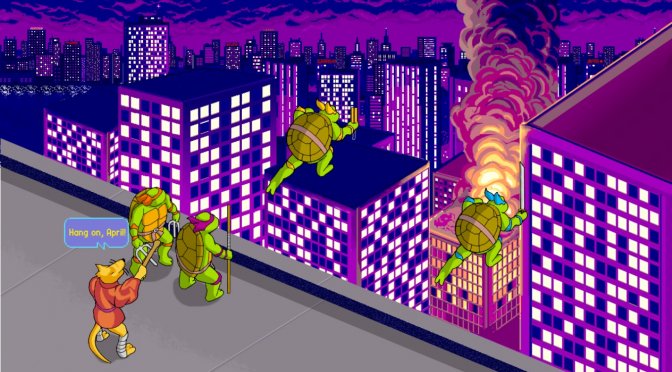Indie developer Rafael has released a new version of his remaster for the arcade version of Teenage Mutant Ninja Turtles. Teenage Mutant Ninja Turtles is a side-scrolling beat-’em-up that came out on the arcades in 1989. As you may have guessed, this game never came out on the PC. However, PC gamers can now experience it thanks to this unofficial remaster.
Version 3.0 comes with a new AI system for the enemies. Enemies are now more aggressive and have new animations. Moreover, Rafael has added better sprites for all turtles and enemies.
Now I really don’t know how long this fan game will be available as Konami may send its creator a C&D letter. We’ve seen this happening before, so I strongly suggest downloading the game as soon as possible.
After watching this remaster and the original arcade versions side by side, I can spot some differences. There are some hit detections issues and some of the animations need a little bit more work. Still, I have to say that Rafael came really close to the real deal, so kudos to him.
Speaking of TMNT fan games, you may also want to play another fan game, Teenage Mutant Ninja Turtles: Rescue-Palooza. Teenage Mutant Ninja Turtles: Rescue-Palooza features 60 playable characters, 17 stages, 4 Bonus stages, 4-player local coop, improved graphics, voice clips from the TV show, rideable vehicles and countless references to the original TMNT cartoon and toyline.
You can download the PC fan remaster of Teenage Mutant Ninja Turtles Arcade from here. I’ve also included below a video from the arcade version so you can compare these two games yourselves.
Have fun!

John is the founder and Editor in Chief at DSOGaming. He is a PC gaming fan and highly supports the modding and indie communities. Before creating DSOGaming, John worked on numerous gaming websites. While he is a die-hard PC gamer, his gaming roots can be found on consoles. John loved – and still does – the 16-bit consoles, and considers SNES to be one of the best consoles. Still, the PC platform won him over consoles. That was mainly due to 3DFX and its iconic dedicated 3D accelerator graphics card, Voodoo 2. John has also written a higher degree thesis on the “The Evolution of PC graphics cards.”
Contact: Email

